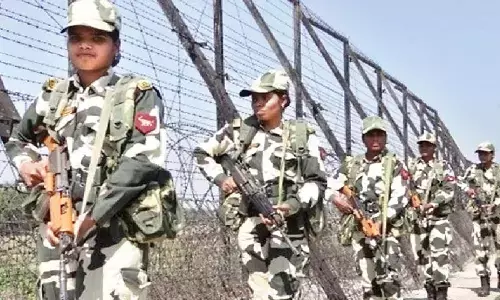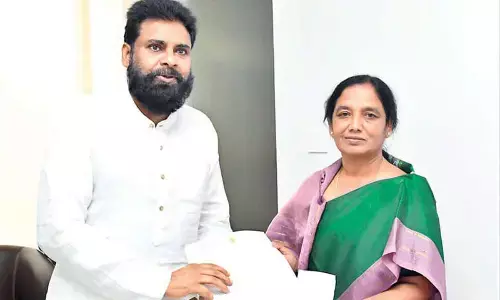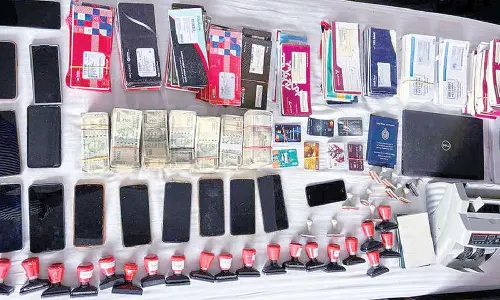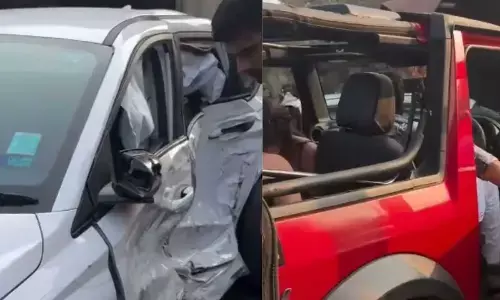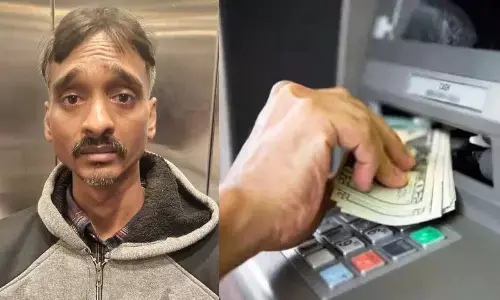India's 'steel frame' looks rusted
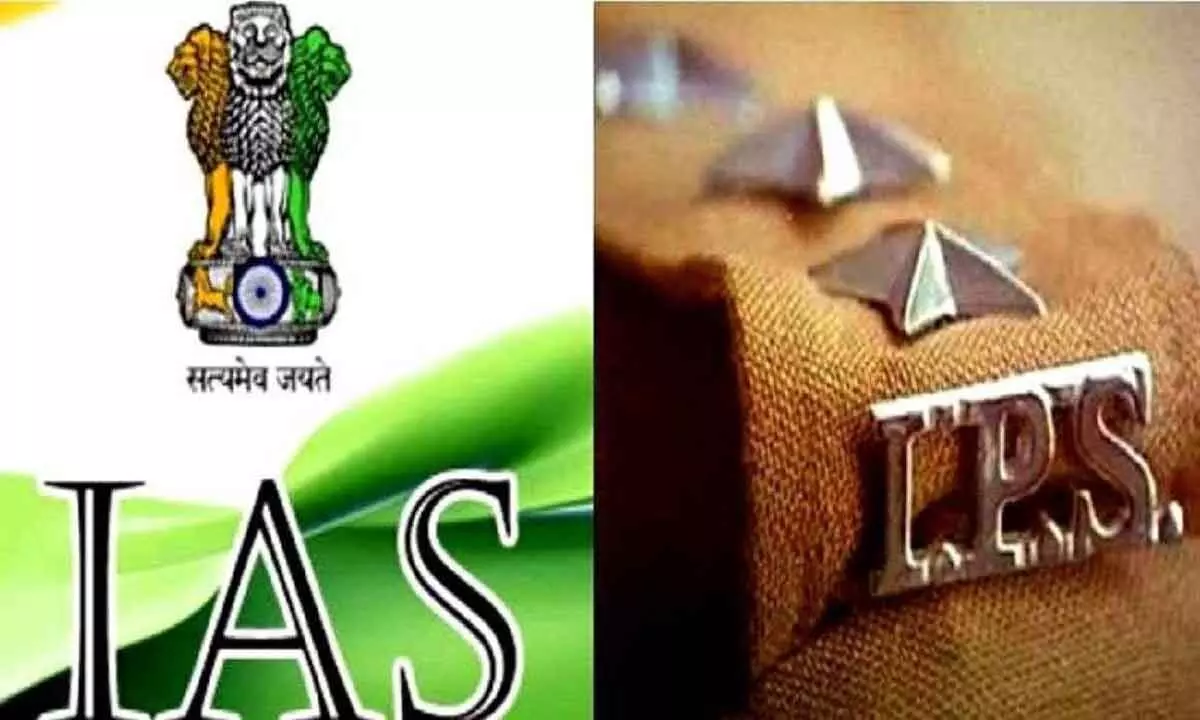
Civil servants must eye and strive for better governance
There is a widely shared view that the All India Services, which provided the 'steel frame' of governance in a democratic India, granting Constitutional autonomy to the state administration, particularly on the police front, are failing to deliver because of a declining decision-making ability of its officers, their smugness arising from notions of total employment security and inadequacy of parameters used for evaluating their performance.
Selection on the strength of a merit-based examination that is open to all – irrespective of class, creed or region – is still a huge commendation for the Civil Services and it can also be said that the pride and confidence of their young officers in the initial few years of service is still holding, by and large. However, things did not add up as the officers moving up the career graph lost their shine and took to serving their personal interests generally. The 'steel frame' today looks rusted. Still, no other nation has an equivalent of All India Services in terms of offering a career starting at the 'leadership level' in the administration of various wings of the country's government, including the handling of foreign affairs.
An entrant in the Civil Services - after the initial years of training - gets the status of Under Secretary to Government of India. The IAS and the IPS officers are trained by the Centre before they are allocated to various states with the expectation that they would give India - which is a Union of States - a comparable quality of administration and public-oriented governance, uniformly throughout the country. The decline in 'delivery' mainly relates to these two services which should be in the focus of the nation's attention and concern.
A major cause behind the degradation of these Civil Services is the controlling influence that the corrupt leaders ruling the states exercise on the bureaucracy and the police in pursuit of their own vested interests. A practice has developed whereby they put greater reliance on the pliable state service personnel. This results in the common phenomenon of the Chief Secretaries and Director Generals of Police appearing to be at the weakest, not the strongest, point of their career – incapable of upgrading the system presided over by them or upholding the cause of officers below who are upright and firm.
The Centre should make a beginning by acquiring a say in the appointment of CS and DGP of the state by getting the UPSC to draw up a panel of suitable officers in consultation with the state government - the Supreme Court had way back in 2018 favoured this approach. This idea should have been further concretised by now. Also, since the Department of Personnel and the Ministry of Home Affairs have the right to track the performance of IAS and IPS officers, legitimacy of in-service evaluation of these officers for higher responsibilities at the end of 15, 20 and 25 years of service through appropriately constituted boards, should be firmly established so that poorly performing officers are given a decent 'shake hand' with compulsory retirement.
All of this has to be incumbent on a firm assurance of the Centre that the IAS and IPS officers unfairly harassed will be fully protected through a stronger set of safeguards. Civil Services suffered because of a complete erosion of participatory supervision by senior officers - attributable to a tendency of evading accountability. Poor boss-subordinate relationship resulted in low efficiency and productivity. Supervision has no meaning unless it is participatory in the sense that the senior is available any time if the person below seeks guidance on official work from him.
It goes with the freedom to record one's honest opinion based on explicit reasoning, on a matter being put up to a superior authority for decision. The senior, of course, has the right to overrule a suggestion from below - again for explained logic.
In India, a major reason of decline of public administration is the shrinking of the position and authority of District Magistrate-cum-Collector as the anchor of governance. The DM is the symbol of the state closest to the people and the overriding monitor of the working of all wings of the government in the district.
The image of the nation takes a beating when manholes left uncovered by a careless sewage repairman or a water- filled pit or bore well left unguarded at a construction site result in the death of a child, when an old tree by a road side 'counted' by the forest authority but not marked as a potential hazard suddenly falls, crushing a passerby under it or when an ambulance though available is denied to an ordinary citizen admitted to a hospital and needing a shift in an emergency.
It is the DM who is supposed to create deterrence against such grave anti-people acts of functionaries in the district linked to public service, but this is now totally absent because of play of politics even at the local levels and the abdication by young IAS and IPS officers of their basic responsibilities.
The Centre cannot leave this matter to the whims of state politicians and must find ways and means of taking the governance back to the district.
The DM has to be used as the authority to check corruption of the municipal bodies whose gross failure on account of politicisation is a primary reason for the fall of socio-economic condition of people in our cities and towns. Perhaps the most important of the foundational strengths of a democracy is an effective management of law & order that in India's constitutional scheme of things is an autonomous function of the state government.
Working of the police machinery primarily concerned with this is totally left to the care of the states - this leaves much to be desired since very often the Centre becomes a helpless spectator to the misuse of police as a political instrument by the leaders of the state governments. Police reform is more of a slogan and it focuses on political 'interference', man power shortages and need for greater facilities - with little mention of the role of senior officers in preventing the chronic malfunctioning of the police station, slow computerisation of complaints and records and need for internal examination of the reasons why law-abiding citizens shun approaching the police.
Greater investment may have to be made on district intelligence units in view of the increasing responsibility of the police in the sphere of internal security. The malady of 'political interference' can be largely contained if the IPS leadership in the state takes greater professional responsibility for the performance of the police stations that provide the police-citizen interface at the ground level.
Following the announcement of the Agnipath scheme for recruitment to the defence services at the level of 'jawans', some former civil servants think that replication of this pattern for induction into All India Services could be tried as the cost-effective method of making up on the man-power shortages and at the same time using the retrenched hands as messengers for spreading the awareness of the importance of public service in the society.
They seem to have missed out on some basic points. First, Agnipath is not a Short Service Commission for officers - it is recruitment of 'soldiers' of higher quality capable of absorbing technology of war equipment and a skill-set that would give them better employability on return from a brief engagement with the defence services.
Instead of a skill set, the person might learn the 'tricks of the trade' to be used on return - it would also be difficult to catch up with the individual for any deliberate wrong-doing done during the short period of service. Defence services are associated with a kind of nobility and pride that are not necessarily a defining feature of public administration and political governance everywhere. The two domains are not comparable in terms of recruitment, orientation and accountability - it is not necessary to mix apples with oranges.
(The writer is a former Director of Intelligence Bureau. The views expressed are personal)


